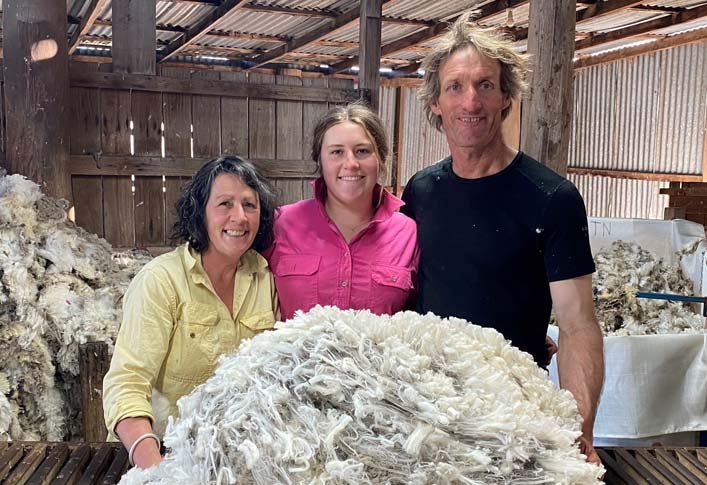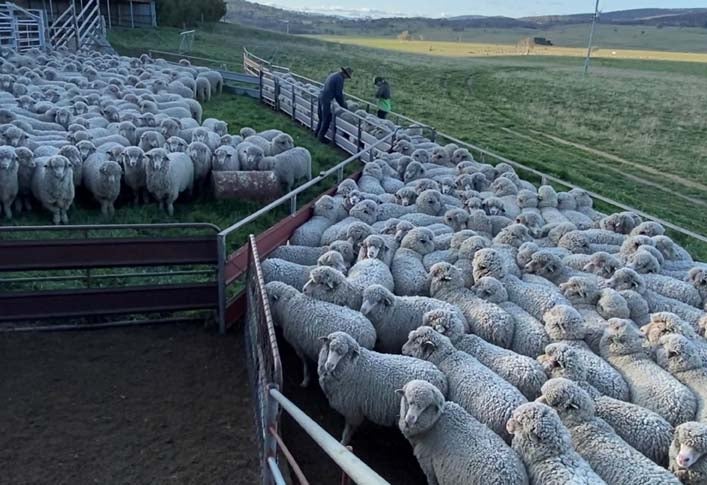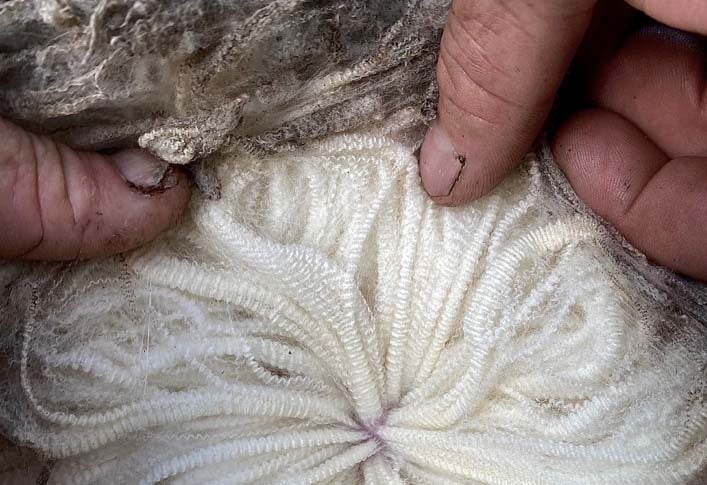Posted by on
04/05/2021
If you can’t measure it, you can’t better it – and for Cooma’s McGufficke family, genomic testing is ensuring its 15,000 commercially focused merino flock is continually on the improve.
Greendale Merinos is a genuine intergenerational family farm, owned and operated by Alan and Michelle McGufficke, together with daughters Florance, Miranda and Ivy plus Mark and Karen McGufficke with children James, Lachlan and Elle.
Together, the family is constantly striving to increase efficiencies through genetic selection, helping maximise profits and provide the consumer with a superior quality merino wool product.
It’s a journey that began 40 years ago thanks to the McGufficke family’s dedication to participating in Wether trials and flock comparisons, and has progressed into a highly data-driven operation backed by scientific benchmarking tools such as genomic DNA testing and Australian Sheep Breeding Values (ASBVs).
While ASVB’s – estimates of the genetic potential across a range of economically important traits a sheep will pass onto its progeny – have been measured across the flock for the past 14 years, more recently the McGuffickes have turned to genetic testing for a precise description of a sheep’s genetic merit.

“Sheep have the two most heritable traits of any domestic animal, and that is fibre diameter and fleece weight, and through science we are now able to refine our breeding and produce a superior flock that is at the forefront of the merino industry,” Alan said.
“For the past three years we’ve been DNA testing using genomics to increase and improve the genetic performance and predictability of the flock – and by identifing the top performers our breeding efficiency and profits continue to improve,” Alan said.
This sophisticated technology has raised the bar in terms of wool quality, with Alan estimating that over four to five years half a micron could be dropped from the clip. Through correct genetic selection lower micron with increased fleece weight can be achieved.
“We are performing at the pinnacle of the industry, refining our flock through genetic testing, and still experiencing a two to three percent increase in production annually – you can always keep improving.”
Alan said for wool producers looking for a more profitable flock, they could expect a marked difference within two to three years through using genetic comparison and selection.
The merino wool grown on the McGufficke’s property – 100,000 kilos annually, with a flock average of 17.5 microns– is sold at auction and is largely used to supply high-end fashion houses.

“In today’s environment I’m extremely proud to be producing a natural fibre that is durable, sustainable and fully bio-degradable, and as Australia is the world leader in merino wool production, it’s exciting to have this technology of genetic selection and comparison to further enhance our natural product.”
And thanks to the McGuffickes’ unwavering commitment to increasing efficiencies across their merino flock, we can all enjoy superior quality wool, locally and across the globe.
